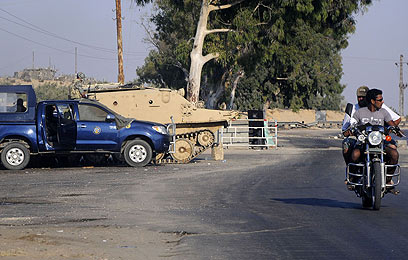HARTFORD, CT: It is clear that Israeli-Jews and Palestinians are locked in a difficult ethno-political conflict laced with strong emotions. But ultimately, the two sides have no choice but to talk to one another. They must communicate to resolve political differences and although this may come as a surprise to some: argument will be their primary resolution tool.
Research on argument between Israelis and Palestinians suggests that they argue frequently and intensely but not very effectively. Each side tends to take extreme positions and holds fast to them. Unfortunately, they spend little time on nuanced examination of each side’s assumptions and presuppositions. By contrast, productive argument is principled disagreement which under proper conditions of group contact produces valid claims that help achieve a new consensus through understanding and working toward common interpretations.
Even though the conflict between Israeli-Jews and Palestinians is passionate and emotional, it does not mean that rational argument is futile. Groups, not just individuals, maintain beliefs and political positions that must be addressed and should not be regarded as irresolvable emotional clutter. In fact, it is important that this not happen.
Israelis and Palestinians can benefit from additional communicative exposure to one another during the conflict resolution process. Such exposure to non-like-minded views is useful because it can allow an Israeli, for example, to increase his awareness of the rationale and assumptions underlying his own viewpoint and gain a greater understanding of the rationale and assumptions informing the Palestinian viewpoint, a process which is likely to increase tolerance on both sides.
There are five advantages to be enjoyed by increased attention to the quality of argument in the Israeli-Jewish and Palestinian conflict. The first is widened exposure to information. Put simply, argument increases the odds of making better choices because individuals can step beyond the boundaries of their own knowledge and abilities and interact with others. They can participate in the intelligence of others and have their own intelligence stimulated in new ways. Tamara Wittes, who studies negotiations between Israelis and Palestinians, found that increased discussion and argumentative exchange broadened the information available for consideration.
Second, vigorous quality argument increases the range of alternative solutions. Argument helps manage the problem of complexity. For example, in the Israeli-Palestinian conflict one could gather all sorts of information from politicians, military leaders, think tanks, conflict specialists, and ordinary citizens and it would still be difficult to know how to solve the problem. This is because different parties have different kinds of information and preferences for outcomes. Errors and mistakes can all be exposed and brought into line by vigorous argumentative engagement.
Third, argument between Israeli-Jews and Palestinians can be beneficial by exposing inconsistencies between social realities and principles of justice and fairness. Argument is especially helpful at displaying how social realities maintain exclusion or discrimination. These discriminations are the result of erroneous judgments that result in problems and such judgments must be uncovered.
Fourth, engaged argument provides a collective mode of justification. One is forced to abandon self-interest and consider the collectivity more fully.
Suppose a mediator asks participants from both sides of a conflict to privately write down what they want in the negotiation. Neither side has to justify what they write to the other side and can easily express pure self-interest. But if the participants are required to discuss the issue together beforehand then the chances of expressing pure self-interest are mitigated.
In other words, in an open discussion it is still possible to offer suggestions based solely on self-interest, but the interaction rarely stops there. The other side will ask for reasons and justifications which is likely to result in a moderation of views.
Finally, arguments legitimize decisions. Private decisions are simpler as the decision does not require the consent of others. But a group decision depends on the support of the participants and such support is more likely when the group has argued through issues. Moreover, if argument between groups increases the chances of consensus and improves the quality of decisions, then it is logical to conclude that group members are likely to be supportive of the decision. Such joint supportiveness is crucial for a successful Israeli-Palestinian negotiation process.
Argument is the most effective ethical and intellectual tool for problem solving. Principled argument expands informational resources, focuses attention on substantive issues, and legitimizes solutions. True, argument processes designed to solve conflicts are messy, complex, and challenging.
But given the potential for violence and destruction in the Israel-Palestinian conflict, it is a challenge we cannot afford to ignore.
Donald G. Ellis is a Professor in the School of Communication at the University of Hartford in Connecticut, U.S.A. He has written numerous books and articles on argument and communication processes as they pertain to the Israeli-Jewish Palestinian conflict.This article was written for the Common Ground News Service (CGNews).



